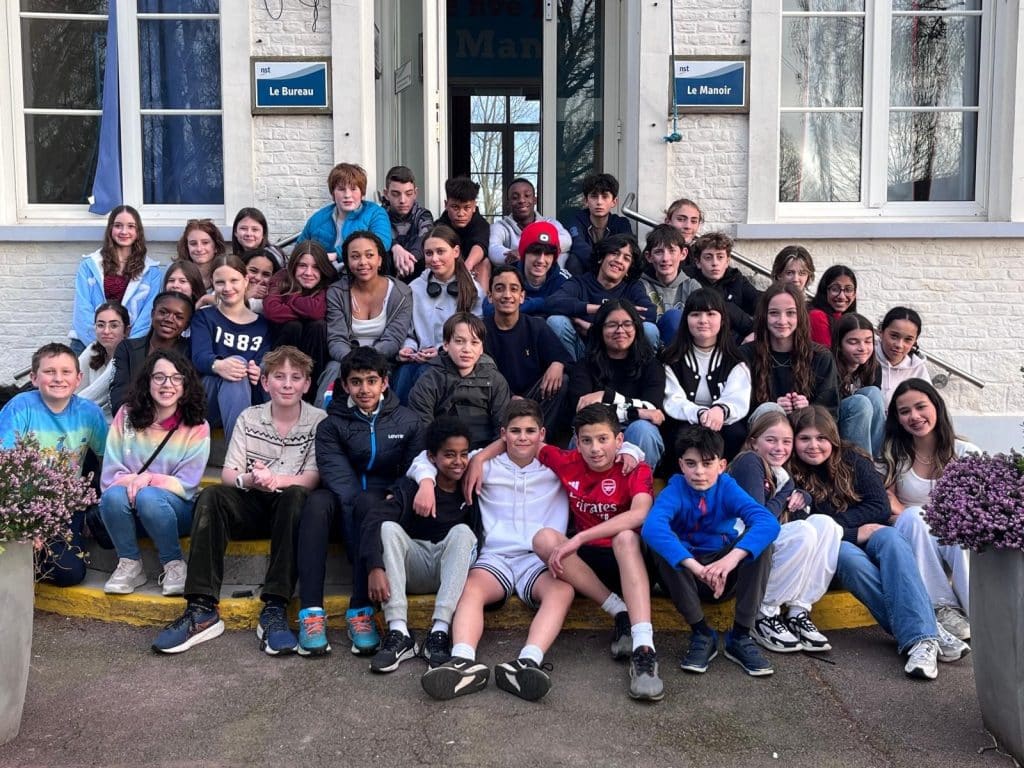French at Forest School
Head of Department: Dr Gray ajg@forest.org.uk
French is the fourth most widely-spoken language in the world, and one of the fastest growing, with over 200 million French speakers in the world today, and a projected 700 million French speakers by 2050. French culture and Francophone cultures of Europe, Africa and the Caribbean, are some of the richest and most rewarding to study on the planet. French is also one of the most important languages for international relations, business and finance.
Learning French will not only enhance your prospects with an employer in this country or abroad, but will also open the door to further French study, giving you access to French literature, film, art and philosophy which shape our modern world.
The French department at Forest aims to support students to develop the ability to communicate effectively and spontaneously in a wide range of situations. We want our students to feel confident to use their language skills and to be able to speak and write with grammatical accuracy and fluency, enabling them to communicate naturally in the target language. As students progress higher up the school, they will be able to engage even further with elements of culture, film and literature from the Francophone world.
Our rich curriculum includes:
- Regular trips to France to improve language and cultural knowledge
- Visits to the theatre to see a French play with Onatti Theatre Company
- Individual sessions with our French language assistant
- Translation and essay competitions
- A collection of film and literature to borrow from the Martin Centre Library
GCSE and A-level Overview
The Edexcel IGCSE in French qualification enables students to:
- Students will develop vocabulary knowledge and grammar skills in order to write and speak about topics such as holidays, family, hobbies, health, technology and global issues.
- Students will build an awareness of countries and communities where French is spoken as well as understanding the language in a variety of contexts.
- Students will develop skills which will serve as a pathway to A level study.
The examination of the course is divided equally across the four key skills: listening, reading, speaking and writing.
The Edexcel A Level in French qualification enables students to:
- Students will study a diverse range of topics in the target language. These include studying key elements of French society, such as family structures, the education system and the world of work. Students also study artistic and political culture in Francophone countries, looking at music, media, film and cultural traditions. Other modules include a study of French politics and an analysis of French history, focussing on the Second World War, France under Occupation and the role of the Resistance.
- Students will also study a film, such as ‘La Haine’, and a novel or play. Recent groups have studied Moliere’s ‘Tartuffe’ or ‘No et moi’ by Delphine de Vigan.
- Students will enhance the four main skills which they developed at IGCSE in order to communicate with greater fluency, spontaneity and autonomy.
- Students will have dedicated one-to-one lessons with our French language assistant. This provides further opportunity to sharpen their grammatical skills and to develop their confidence in discussing a diverse range of topics in the target language.
Assessment at GCSE and A-level
IGCSE:
- Paper 1: Listening (30 minutes) – 25% of the total International GCSE
- Paper 2: Reading and Writing (1 hour 45 minutes) – Reading – 25%, Writing 25% of the total International GCSE
- Paper 3: Speaking (8-10 minutes) internally conducted and externally assessed – 25% of the total International GCSE
A Level:
- Paper 1: Listening, reading and translation (Written examination: 2 hours) – 40% of the qualification
- Paper 2: Written response to works and translation (Written examination: 2 hours and 40 minutes) – 30% of the qualification
- Paper 3: Speaking assessment – internally conducted and externally assessed (Total assessment time: between 21 and 23 minutes, which includes a single period of 5 minutes’ formal preparation time) – 30% of the qualification
Curriculum Maps – All Years
How can French change the world?
Language study is not just about translating or interpreting words. Studying a language gives you a better insight into people and their cultures, helps you to learn about a country’s past and present and gives you insight into cultural differences and similarities.
Language study will help to improve your cultural awareness, increase your adaptability and make you a more confident and effective communicator.


